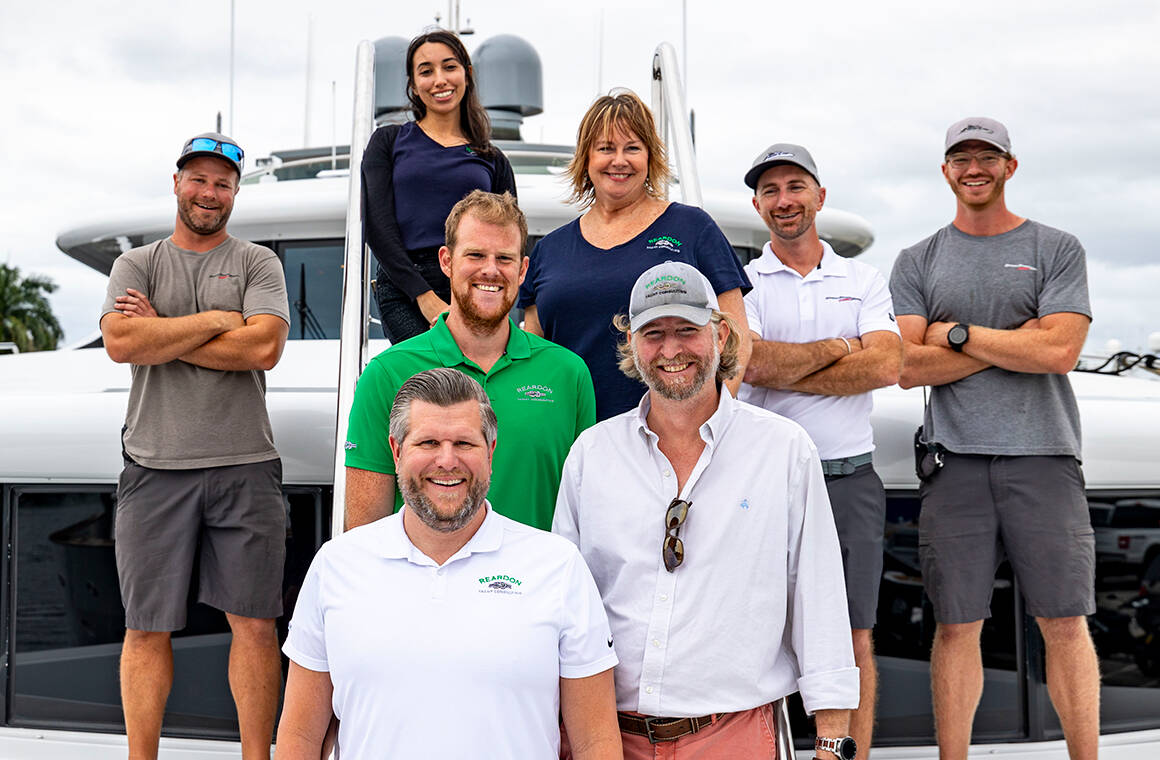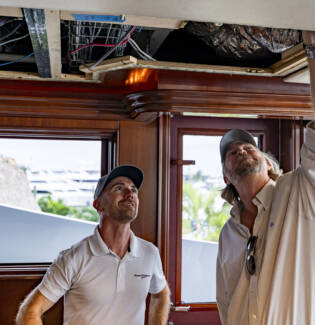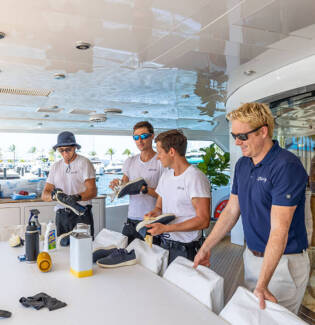Are you considering a career in the maritime industry or looking to advance your skills as a seafarer? If so, you may have come across the term “STCW training” in your research. But what exactly is STCW training, and why is it essential for anyone working at sea? In this blog post, we’ll dive into the details of STCW training, exploring its purpose, requirements, and benefits for seafarers around the world. Any more questions? Looking for more support? Our Crew Placement team is run exclusively by former crew who know the ropes and are happy to support new faces to our beloved industry.
STCW: What Does It Stand For?
STCW stands for the International Convention on Standards of Training, Certification and Watchkeeping for Seafarers. It is a global maritime safety treaty adopted by the International Maritime Organization (IMO) in 1978 and subsequently amended in 1995 and 2010. The STCW Convention sets minimum standards for the training, certification, and watchkeeping duties of seafarers on board merchant vessels.
What is the Purpose of STCW Training?
The primary purpose of STCW training is to ensure that all seafarers possess the necessary knowledge, skills, and competencies to perform their duties safely and effectively at sea. By establishing minimum standards for training and certification, the STCW Convention aims to enhance maritime safety, protect the marine environment, and promote seafarers’ welfare worldwide.
Who Needs STCW Training?
STCW training requirements apply to all seafarers employed on board commercial vessels engaged in international voyages, including passenger ships, cargo ships, tankers, and offshore support vessels. This includes officers, ratings, and other personnel involved in the operation, maintenance, and safety of the vessel!
What Are the Main Components of the Training?
STCW training encompasses various topics and disciplines relevant to maritime safety and operations. Some of the critical components of STCW training include:
- Basic Safety Training: This includes courses in Personal Survival Techniques, Fire Prevention and Firefighting, Elementary First Aid, and Personal Safety and Social Responsibility.
- Advanced Firefighting: Seafarers with designated safety duties must undergo advanced training in firefighting techniques and procedures.
- Medical First Aid At Sea: This course covers basic first aid skills and procedures for treating injuries and medical emergencies on board.
- Proficiency in Survival Craft and Rescue Boats: Seafarers responsible for operating survival craft and rescue boats must undergo specialized training in launching, handling, and recovering lifeboats and rescue boats.
- Security Awareness Training: This course provides seafarers with an understanding of maritime security threats, measures, and procedures to enhance ship security.
What are the Benefits of STCW Training?
STCW training offers numerous benefits for seafarers, including:
- Enhanced Safety: STCW training equips seafarers with the knowledge and skills needed to respond effectively to emergencies and ensure the safety of the vessel, crew, and passengers.
- Global Recognition: STCW certification is recognized and accepted by maritime authorities and employers worldwide, providing seafarers with opportunities for employment and career advancement.
- Compliance: STCW training ensures compliance with international regulations and standards, helping vessels meet mandatory crew qualifications and certification requirements.
The bottom line is that STCW training is crucial to seafarers’ safety, competency, and professionalism onboard. By undergoing STCW training, you can acquire the skills and knowledge needed to navigate the challenges of maritime life and contribute to a safer and more secure yachting industry. Whether you’re just starting your crew career or looking to advance your skills, STCW training is essential to a successful and rewarding career at sea. Any questions? Contact our Crew Placement team today to learn more about becoming a stronger, more successful yachting professional.





